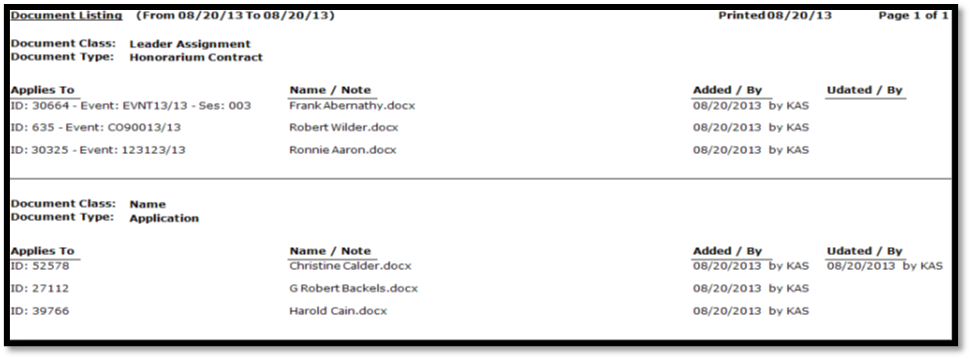
When considering outsourcing, answer the following questions to get a better idea of your needs and what’s possible. Essentially, AP process outsourcing transfers tasks and responsibilities to another company for efficient management. AP automation uses business intelligence software interest revenues definition and meaning to manage your in-house systems (with lower total costs on your part). In addition to invoice receipt and data capture, ILM also offers services such as PO matching, invoice processing and routing, disbursement, accrual, general ledger, and archiving functions.
There are many providers of outsourced accounts payable out there, and they might look like they are offering the same thing at first glance on their services and benefits. However, some practices can be followed to ensure that businesses partner with the proper accounts payable outsourcing provider. Look for a provider with extensive experience in accounts payable outsourcing services and a deep understanding of your specific industry’s nuances and best practices. An experienced provider will have a proven track record of successfully managing AP processes for businesses similar to yours, allowing them to anticipate potential challenges and provide tailored solutions.
While outsourcing helps a company cut costs and improve its service levels, it can often limit their independence. It’s easy to supervise your in-house invoice processing activities as your employees are always visible and accessible. Most businesses still use outdated and expensive systems like optical character recognition (OCR), or even paper invoicing, to manage their AP processes. If your company is scaling up and requires more flexible, scalable AP solutions, outsourcing can provide the necessary adaptability without the overhead of expanding an in-house team. According to one study by the American Productivity and Quality Center, the bottom 25% of organizations surveyed were paying $10 or more for each invoice they processed. Additionally, missed or late payments cost your staff time when they have to right the wrong by recovering erroneous spend, which in turn, reduces time available for other AP functions.
Saves money and time
This means that you use the accounts payable services of an external entity to perform your business transactions. AP Automation, in comparison, is the adoption/integration of an AP software to extract, validate and approve accounts payable invoice processes. For many businesses, invoice data entry and payables management are not always 100% integrated into business functions, so it can often be lucrative to outsource this paperwork. Accounts payable outsourcing can help smoothen the AP process while ensuring that payments to vendors are cleared efficiently.
Cost Savings through Accounts Payable Outsourcing
Additionally, implementing accounts payable automation software may require a significant initial investment (or recurring SaaS fees) in accounting principles explained: how they work gaap ifrs software and training of in-house employees. Also, some organizations may prefer to retain direct (manual) control over their accounts payable operations. Outsourcing accounts payable processes can also give businesses enhanced visibility and control over financial transactions.
- As your business grows or undergoes changes, your accounts payable outsourcing needs may evolve.
- They’ll even negate many of the problems that have plagued AP departments for decades.
- However, some practices can be followed to ensure that businesses partner with the proper accounts payable outsourcing provider.
- If this is the case, a small error can quickly turn into a huge hassle that goes unresolved for days or weeks.
Your vendor relationships are suffering
An alternative to outsourcing your AP function is implementing AP automation. When you outsource accounts payable, a third-party company runs your AP department. With AP automation, your in-house coefficient definition types and examples video and lesson transcript accounts payable team uses a sophisticated platform to streamline your internal AP systems.
Since their business model is built on low processing costs for invoices, they may kick exceptions processing back over to you or your team. Administrative, tracking & reporting – Since you’ll be paying this vendor a fee to manage your AP, they’ll often provide reporting among other administrative functions. Managed AP services can offer reporting on cost per invoice and time to payment among others, and routines such as analysis, month and year-end close, reconciliation, and AP document management. If there are limited resources within your accounts payable (AP) department, it’s key to identify how the function can scale to better process invoices when volume increases. This is in addition to all of the other financial tasks you need to take on to keep the business growing. Accounts payable outsourcing is the process of hiring a specialised service provider who can take over multiple AP functions that businesses find difficult to handle in-house.

AP automation vs. AP outsourcing
With a third-party provider, you will have to play by their terms and timings. They might be located far away and the lack of transparency in processes can become a serious issue. To gather insights on these factors, it’s advisable to engage in in-depth discussions with potential providers, request detailed proposals, and conduct thorough due diligence. This may include site visits, reference checks, and comprehensive reviews of their processes, systems, and personnel. Once the planning phase is complete, the next step is selecting the most suitable outsourcing partner. This decision should be based on factors such as the provider’s expertise, technological capabilities, industry experience, and client testimonials.
AP automation is possible when subscribing to a SaaS solution, adopting a dedicated accounting software, or adopting an ERP system on-premises. Finally, continuous improvement strategies should be implemented to leverage the insights gained from outsourcing and adapt to changing business needs and market conditions. This may involve refining processes, implementing new technologies, or adjusting the scope of outsourced services to align with evolving requirements. Ensuring compliance with relevant regulations and industry standards is a critical aspect of successful accounts payable outsourcing.